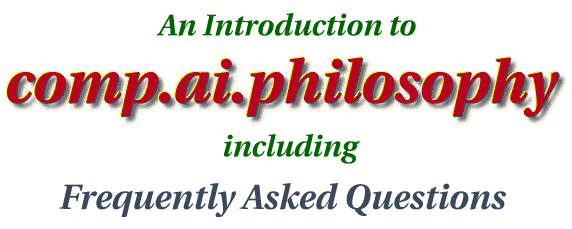

Copyright 1999 by Donald R. Tveter, http://www.dontveter.com, commercial use is prohibited. This material cannot be quoted at length or posted elsewhere on the net or included in CD ROM collections. Short quotations are permitted provided proper attribution is given.
The first AI researchers consisted of mathematicians and programmers. Mathematicians thought they had figured out how the human mind worked, this despite the fact that psychologists who actually study the human mind did not claim to know how the human mind worked. Then there are the programmers: once a programmer knows how to program some complicated algorithm, like, say bubblesort, they think they can program anything. This over-confidence led early researchers to think that great things would happen very quickly. Two of the most famous overly optimistic quotes come from Herbert Simon, first in 1958:
It is not my aim to surprise or shock you ... . But the simplest way I can summarize is to say that there are now in the world machines that think, that learn and that create. Moreover, their ability to do these things is going to increase rapidly until -- in a visible future -- the range of problems they can handle will be coextensive with the range to which the human mind has been applied. [Simon and Newell 1958]
and then in 1965:
Machines will be capable, within twenty years, of doing any work that a man can do. [Simon 1965]
Marvin Minsky was another optimist in 1967:
within a generation the problem of creating 'artificial intelligence' will be substantially solved. [Minsky 1967]When the research failed to produce much of anything in the way of general intelligence the true believers were roundly criticized by people who didn't think the AI researchers knew what they were doing. Minsky is quoted as saying in 1982:
The AI problem is one of the hardest science has ever undertaken. [Kolata 1982]
Thus, there is good reason for AI researchers to remain humble until such time as they actually have a system that most people will think of as at least pretty close to a human being in terms of capabilities. This may take a while, but so what? Physics has been around for hundreds of years and they're not finished yet so if AI takes hundreds of years, that's just the way some things go.
How soon we arrive at a near human artificial intelligence depends a lot on what kind of computers and algorithms will be necessary, that's the topic of the next section however in my opinion if you're sitting on the edge of your chair expecting great things to happen soon then you've been watching too much Star Trek and/or maybe programming too much. An antidote is to read the articles and books by skeptics as well as books on human psychology. The following is a list of some pretty pessimistic analyses of AI (brace yourself) examining the history of AI research and how it has failed. Besides the pessimistic analyses I think you should also pay attention to the psychology of AI researchers.
Besides the above articles it would be nice to have a collection of recent optimistic and pessimistic quotes so if you know of any please send them along. So far I've seen an optimistic estimate online in an article called: Vernor Vinge on the Singularity
Kolata 1982, Gina Kolata, "How Can Computers Get Common Sense?", Science, 217 (September 24, 1982): 1237.
Minsky 1967, Marvin Minsky, Computation: Finite and Infinite Machines, Prentice-Hall, 1967, page 2.
Simon and Newell 1958, "Heuristic Problem Solving: The Next Advance in Operations Research" by Herbert Simon and Allen Newell in Operations Research 6 (January-February 1958):6.
Simon 1965, The Shape of Automation for Men and Management, by Herbert Simon, 1965.